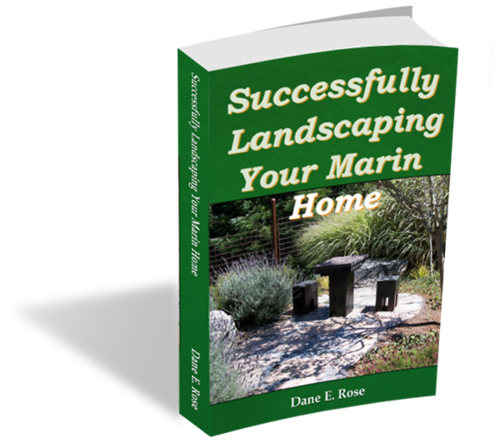Successful Deer Management
There are three main ways that deer can cause damage or be a nuisance in a garden:
Eating your plants.
Pooping on the lawn and other areas.
Damaging trees and shrubs as bucks attempt to rub the velvet off of newly emerging horns.
The most straightforward approach to all potential deer problems is to fence them out of all or a portion of your garden. A seven foot high transparent fence, which can be constructed of wire and netting attached to various frameworks, or an opaque six foot high fence will generally do the job. Variations on this can include a four foot transparent fence placed immediately on top of a three foot wall, creating a total jump height of seven feet. Depending on your budget it is possible to create any of a number of fence types, including wrought iron. Avoid leaving gaps wider than six inches.
The second strategy is more involved and experimental. Bucks tend to want to scrape the velvet from their horns in winter/spring. Mini-fences five feet tall or sticking six foot long bamboo stakes in the ground around the tree every four inches during this period usually works. Creating a garden that features stone, art and sculpture and deer resistant plants takes' care of the biggest problem, which is plants being eaten.
It’s important to be aware that deer will eat almost any plant if there is no alternative – even plants on most deer proof lists. To know what the deer are eating in your neighborhood pay attention to your neighbors and what is working for them. What is eaten a mile away may not be eaten in your garden and vice versa. The list of plants I have never seen a deer eat grows ever smaller!
It is often a combination of factors that ensure that a deer does not eat a specific plant, any one of which may not be enough alone. Having a dog helps, along with being closer to town in higher-traffic areas. A pet lion would almost certainly do the trick, although lions have been known to produce serious side effects on human health (being eaten not being the least among these).
Plants closer to a house will tend to be bothered less than plants further away and deer are somewhat discouraged by having to walk up steps or over decks that make a lot of noise, but this is a minor deterrent that can in no way be counted on. Then there are the various commercial deer deterrents, such as liquid fence, soaps and socks filled with blood-meal. While all of these things discourage deer, it all depends on how hungry they are and whether or not there is easier food nearby. Your job is to make the deer dining facilities of your garden less attractive than the establishments offered by your neighbors, as deer rarely pay their bills and are lousy tippers.
Reflectors and moving shiny objects also play a role in deterring deer from entering areas by jumping. I have seen instances where deer were jumping over a four foot gate inside an arch, but stopped when a decorative piece of shiny cloth was hung from the arch so that a deer would have to touch it as they jumped over the gate. Deer prefer not to jump towards shiny moving objects.
A short list of deer resistant plants with year-round interest: (Add to this list by talking with knowledgeable nursery staff.)
Mexican and other sages
New Zealand flax
Acorus Gramineus
All varieties of Rosemary
Creeping lantana
Yuka
Coleonema
Lavender
Daphne
Miscanthus and many other ornamental grasses
Sedum (and all other succulents/cactus)
Japanese boxwood
Loropetalum “Plum Delight”
Polystickum ferns
Santolina
Tulbaghia violacea “variegate” (Society Garlic)
Rhododendrons (can get eaten sometimes)
Sasanqua Camellias (can get eaten sometimes)
Oak leaf Hydrangeas
This image from Mystical Landscapes shows two strategies for managing dear:
Outside the fence Spanish Lavender, Coleonema, Birch Tree and New Zealand Flax are all very deer resistant.
The fence is designed as a deer fence with an open feel: The outer grape stakes are taller and deer cannot jump through the gaps. The inner grape stakes are shorter, providing views in and out of the fenced area.
"Thank you for the best design I could have ever wished for."
Linda Wilson
(415) 455-9161






